
1. What theory suggests that crime is a result of biological, psychological,
and social factors?
- A) Strain Theory
- B) Social Disorganization Theory
- C) Biopsychosocial Theory
- D) Differential Association Theory
Answer: C) Biopsychosocial Theory
Rationale: The biopsychosocial theory integrates biological,
psychological, and social factors to explain criminal behavior, suggesting
that a combination of these factors influences individuals' propensity to
commit crimes.
2. Which of the following is a principle of the Classical School of
Criminology?
- A) Criminal behavior is learned.
- B) Crime results from abnormal, dysfunctional, or inappropriate
mental processes.
- C) Individuals have free will to choose criminal or lawful solutions.
- D) Crime is a result of the community disorganization.
Answer: C) Individuals have free will to choose criminal or lawful
solutions.
Rationale: The Classical School of Criminology posits that individuals
have free will and make rational choices, and that punishment can deter
crime if it is proportionate, swift, and certain.
3. The concept of 'situational crime prevention' focuses on:
- A) The offender's disposition and personality.
- B) The biological factors influencing criminal behavior.
- C) The social structures that contribute to crime.
- D) The reduction of opportunities for crime through environmental
design.
Answer: D) The reduction of opportunities for crime through
environmental design.
Rationale: Situational crime prevention strategies aim to reduce the
opportunities for crime to occur by altering the immediate physical and
social environment.
4. Routine Activity Theory suggests that crime occurs when which three
jordancarter 7 months ago
This study guide is clear, well-organized, and covers all the essential topics. The explanations are concise, making complex concepts easier to understand. It could benefit from more practice questions, but overall, it's a great resource for efficient studying. Highly recommend!
| Category | exam bundles |
| Comments | 0 |
| Rating | |
| Sales | 0 |
Buy Our Plan



















